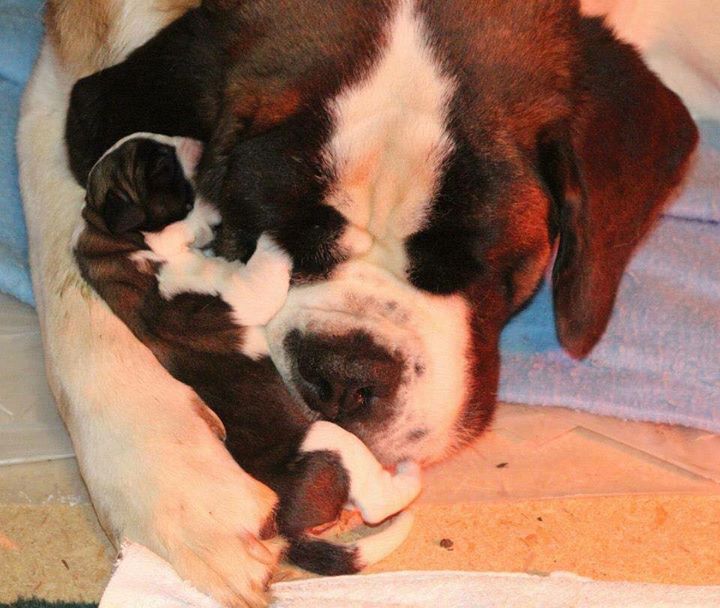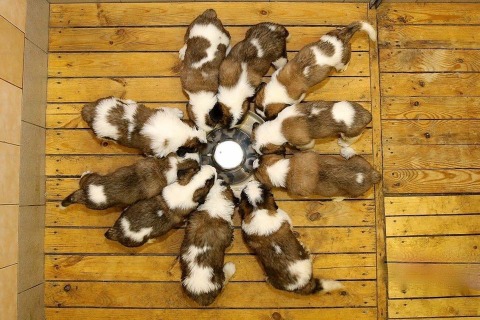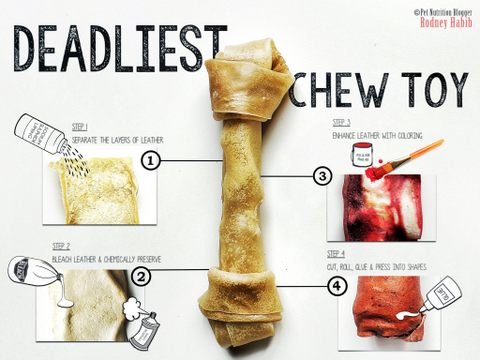FEEDING
When you
talk about feeding a St Bernard, it is just as important to note what NOT to
feed a St Bernard, so that is also included.
Your choice of premium Giant breed dried food should be evident in the dogs coat, energy, health, growth,
performance etc.
Choose a premium dried food specifically for all stages of a Giant Breed dogs development and
maintenance.
For years
we had no choice but to feed food more suited to medium to small size dogs. The
food available was manufactured for the majority, and all of the
representatives of the giant breeds of dogs did not equate to the majority.

YOU NEED TO
KNOW THESE FACTS –
In the first year of their life, a St Bernard will grow to be about 100 times its birth weight.
They require high quality, nutritionally
balanced food during this critical growth period to build a strong skeletal
structure.
At this stage their food intake is high, but reduces to moderate
after the first year, although this varies among individuals
THERE ARE
NO SHORTCUTS – AND THERE IS NOTHING YOU CAN DO RETROSPECTIVELY TO FIX A BAD
START IN LIFE.
Way back
when dried food, with the exception of Tux biscuits, was not available, and
people had to make up the diet of raw and cooked food and dog roll, plus
supplements, the incidence of debilitating diseases like Hip and Elbow
Dysplasia was high. The ‘Hip Score’ average for the breed for those brave
enough to x-ray was high and an indicator of the breeds’ soundness issues.
With an average life span of 7-8 years, the life of a Saint was not only short
but potentially painful.
Other
health issues arose due to this poor unbalanced diet, notably an imbalance
essential vitamins, minerals and nutrients which sometimes resulted in extreme
and life threatening conditions. For
example a Vitamin B deficiency causes seizures which are both life threatening
and stressful. Additionally some severe health issues arose by conscientious
owners supplementing to correct that unbalanced diet and overdoing the dosages.
For example, overdosing on calcium additives can result in hyperparathyroidism,
with symptoms of seizures and collapse.
Dried dog
food of various qualities finally became available in New Zealand about four decades ago.
The benchmark was then, and still is, to look on the food bag for the words AAFCO
(the Association of American Feed Control Officials) approved food. AAFCO establishes the
nutritional standards for complete and balanced pet foods.
The
introduction of nutritionally balanced dried food to the diets of St Bernard’s
not only took the guess work out of feeding your pet, but resulted in the
improvement of Hip scores
to the point where over a decade or two, the average Hip Score for Saints Bernard’s
in NZ reduced by almost 50% and the average life span improved by almost 50%.

When you
receive your puppy or adult dog, you should be given a Diet Sheet with a
summary of the daily intake and frequency of meals.
You can
feed up to 20% additional food to a dried diet without completely compromising
the nutritional balance and value of a dried diet.
Additional
foods should include a mix of table or meal leftovers, raw or cooked meats and
offal, dog roll, canned dog food, cottage or any other cheese, vegetables –
cooked or raw (not raw potatoes or onions), fruit (not grapes, currants, raisins or fruit seeds or pips), eggs – cooked or raw,
pasta, rice, oatmeal and other cereals, fish (no bones), pan scrapings etc
The dried food can be moistened with yoghurt, milk (small quantities),
vegetable water, meat water, raw eggs,
Be careful
adding any supplements like fish oil, flaxseed oil etc and keep the dosages on
the low side of recommended quantities.
Definitely
do not add Calcium to the diet and question anyone who suggests adding it.
Suggested treats can
be whole eggs in the shell (teach your dog to open them), larger dog biscuits,
carrot sticks, a cube of cheese, a piece of wholemeal toast with vegemite, a dried
pigs ear.
RULES OF FEEDING:
SAINT
BERNARDS CAN GET BLOAT. BE CAREFUL OF THE EXERCISE, FOOD AND WATER COMBINATION.
DO NOT FEED
YOUR DOG IMMEDIATELY FOLLOWING EXERCISE OR EXERCISE WITHIN ONE HOUR OF A MEAL.
DO NOT LET
YOUR DOG DRINK LARGE QUANTITIES OF WATER FOLLOWING EXERCISE. ALLOW THEM DRINK BUT
NOT TO EXCESS.
NEVER FEED
YOUR DOG RAWHIDE CHEWS OR RAWHIDE TOYS. THEY ARE DANGEROUS, AS A RESULT OF THE
MANUFACTURING PROCESS
AND THE
CHEMICALS USED IN THAT PROCESS. THEY CAN CHOKE YOUR DOG.
DO NOT FEED
BONES, EXCEPT FOR LARGE CANNON BONES TO ENTERTAIN PUPPIES. SAINTS DO NOT CHEW BONES
SMALL ENOUGH AND SWALLOW LARGE PIECES WHICH CAN PUNCTURE THE GUT AND BOWEL. THIS IS LIFE
THREATENING. THE FOOD VALUE OF BONES CAN
NOT BE COMPARED TO THE VALUE OF YOUR SAINT.
DO NOT FEED YOUR SAINT ANY FOOD THAT IS RANCID, MOULDY OR ROTTING.
FEED YOUR
DOG AT GROUND LEVEL. THE LATEST RESEARCH ON BLOAT STATES THE HIGHER THE BOWL,
THE HIGHER THE INCIDENCE OF BLOAT.

DO NOT FEED THESE FOODS TO YOUR SAINT AND WHY.
| Alcoholic beverages |
Can cause intoxication, seizures, low blood sugar, arrhythmias, coma, and death. |
| Avocado |
The leaves, seeds, fruit, and bark contain persin, which can cause vomiting and diarrhea. The seed can cause an intestinal blockage.
|
| Bones from fish, poultry, or other meat sources |
Can cause obstruction or laceration of the digestive system. |
| Cat food |
Generally too high in protein and fats. |
| Chocolate, coffee, tea, and other caffeine |
Contain caffeine, theobromine, or
theophylline, which can cause vomiting and diarrhea and be toxic to the
heart and nervous systems. |
| Citrus oil extracts |
Can cause vomiting. |
| Fat trimmings |
Can cause pancreatitis. |
| Fish (raw, canned or cooked) |
If fed exclusively or in high amounts can result in a thiamine (a B vitamin) deficiency leading to loss of appetite, seizures, and in severe cases, death. |
| Grapes, raisins and currants |
Contain an unknown toxin, which can damage the kidneys. There have been no problems associated with grape seed extract.
As little as a handful of grapes has proven fatal.
|
| Hops |
Unknown compound causes panting, increased heart rate, elevated temperature, seizures, and death. |
| Human vitamin supplements containing iron |
Can damage the lining of the digestive system and be toxic to the other organs including the liver and kidneys. |
| Macadamia nuts |
Contain an unknown toxin, which can affect the digestive and nervous systems and muscle. Can cause an intestinal blockage.
|
| Marijuana |
Can depress the nervous system, cause vomiting, and changes in the heart rate. |
| Milk and other dairy products |
Some adult dogs and cats may develop diarrhea if given large amounts of dairy products. |
| Moldy or spoiled food, garbage |
Can contain multiple toxins causing vomiting and diarrhea and can also affect other organs. |
| Mushrooms |
Can contain toxins, which may affect multiple systems in the body, cause shock, and result in death. |
| Onions and garlic (raw, cooked, or powder) |
Contain sulfoxides and disulfides, which can damage red blood cells and cause anemia. Cats are more susceptible than dogs. |
| Persimmons |
Seeds can cause intestinal obstruction and enteritis. |
| Pips and stones from peaches and plums |
Can cause obstruction of the digestive tract. |
| Rhubarb leaves |
Contain oxalates, which can affect the digestive, nervous, and urinary systems. |
| Salt |
If eaten in large quantities it may lead to electrolyte imbalances, seizures, and even death. |
| Sugary foods |
Can lead to obesity, dental problems, and possibly diabetes mellitus. |
| Table scraps (in large amounts) |
Table scraps are not nutritionally
balanced. They should never be more than 10% of the diet. Fat should be
trimmed from meat; bones should not be fed. |
| Tobacco |
Contains nicotine, which affects the digestive and nervous systems. Can result in rapid heart beat, collapse, coma, and death. |
| Yeast dough |
Can expand and produce gas in the digestive system, causing pain and possible rupture of the stomach or intestines.
|
| Xylitol (artificial sweetener) |
Can cause very low blood sugar
(hypoglycemia), which can result in vomiting, weakness and collapse. In
high doses can cause liver failure and death.
|